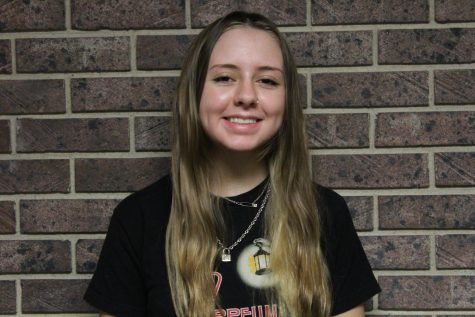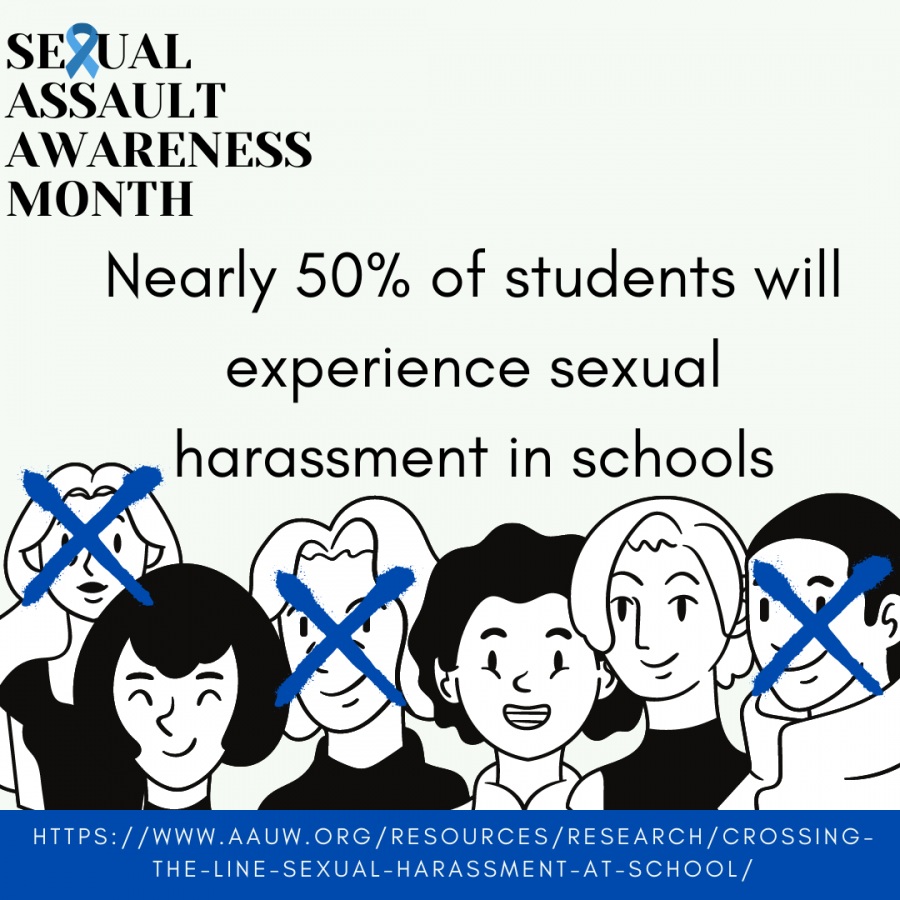Administration works to revamp sexual harassment policy
According to AAU.org nearly half of students will experience sexual harassment in school.
During the 2015-16 school year, the Department of Education (DOE) found that 9,600 students K-12 nationwide were sexually harassed or sexually assaulted in schools. In a more recent survey, the DOE found the number had increased nearly 50 percent during the 2018-19 school year, averaging to be 15,000 students.
Title IX, the federal civil rights act passed in 1972, protected individuals from discrimination on the basis of sex and race, has undergone changes in recent years. The district policy regarding sexual harassment has been reformed to address behaviors not suitable for schools.
“We want it to be a safe place for people to come and learn and feel safe and comfortable in our building, using the policies and actually enforcing what is there in our district policy and following the procedures that are now under and in the new Title IX regulations,” principal Rick Rivera said.
Part of the revamping includes how formal complaints are made. Before the updates, complaints would go through Rivera and the school would lead the investigation.
“It’s our duty as an administration to make sure threats are investigated,” Rivera said. “Two things we want to make sure of, one is that the rights of the one making the accusation is protected and also that on the other side, the one being accused of something inappropriate, that their rights are protected too, and that we’ve come to discover the truth in the investigation.”
Due to a policy change, assistant superintendent Holly Kerns acts as the title IX liaison and leads all investigations from formal complaints. Complaints can be made directly at her office or through assistant principal Ryan Muhlig or Rivera. However, telling anyone about the sexual harassment, including a teacher can jump-start the process.
“If it is a student, it’s important that they go to an adult who they can trust who can help them come to us so that we can begin addressing that,” Rivera said. “We want this to be a safe place for students, and if our students don’t feel safe because they are being harassed, that’s one thing, but if they don’t feel safe enough to be able to report it, that’s another issue we need to address.”
Rivera wants students to feel safe in classes and the hallway, but understands he might not be the adult students share with.
“Visit with an adult who they trust. It can be a teacher, it could be a counselor, and it could be someone here in our office,” Rivera said. “I know sometimes, because of our position as a principal or Mr. Muhlig’s position as assistant principal and the fact that we are male, sometimes females don’t feel comfortable with that, so go to an adult in the building.”
Without speaking up, the administration cannot launch an investigation.
“It’s hard for us to investigate things we are not made aware of. That’s just the beginning of it, reporting it,” Rivera said. “Having the courage to know that not only is this not okay but it has to stop and you need to do something to make it stop…”
In order for an investigation to move forward, the complaint must have solid ground such as meeting the school’s definition of sexual harassment. The school focuses on the victim’s perception of the harassment rather than the intent of the act.
“There could also be a power struggle or an imbalance of power, so a variety of things could be this: teacher towards the student, but it could also be reversed, a student could be doing something in a class that is making a teacher feel uncomfortable. It’s also not really gender-specific so it could be male towards female, female towards male, male towards male or female towards female,” Rivera said.
After the investigation is conducted, a verdict is reached. If a formal complaint is found to be true, the harasser could face suspension or even expulsion depending on the severity of the case.
“They need to understand this is not okay, this is the appropriate behavior we expect from any of our students at Augusta High School,” Rivera said.
If the accusation is found to be false, the accuser could face similar punishment.
“If there is, in the sense false that you knew that it was false and you were intentionally making a false accusation depending on the severity of that situation, you would be looking at discipline issues there that could be detention, suspension, and again depending on the severity up to an expulsion,” Rivera said.
Although punishment is possible, students should not fear sharing their stories.
“It all starts with someone speaking up and speaking out,” Rivera said.

Senior Emily LaPlant has been on staff for three years and is one of the managing editors for 2020-2021. When LaPlant is not in the newspaper lab she can...








